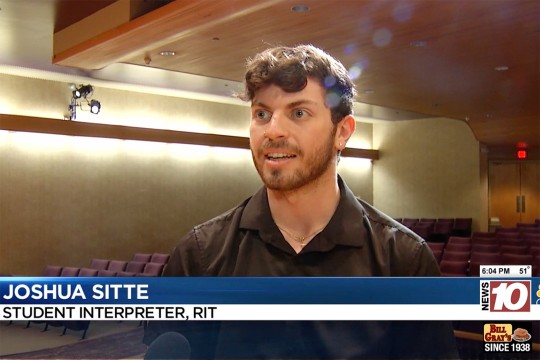RIT Gannett Lecture Considers the Juvenile Death Penalty, Dec. 11
Author Joan Jacobs Brumberg gives talk; David Kaczynski sits on discussion panel
Controversy about the juvenile death penalty is back in the news with the murder trial of Lee Malvo, the young sniper suspect accused of terrorizing the Washington, D.C. area last year.
In a timely lecture, scholar and author Joan Jacobs Brumberg will present “Rethinking the Juvenile Death Penalty: The Case of ‘Kansas Charley’” at 7:30 p.m. on Thursday, Dec. 11, in Webb Auditorium of the James E. Booth Building on the Rochester Institute of Technology campus. The free and public talk is part of RIT’s Caroline Werner Gannett Lecture Series sponsored by the College of Liberal Arts.
Brumberg, a professor of history, human development and gender studies at Cornell University, wrote Kansas Charley: The Story of a 19th Century Boy Murderer (2003), The Body Project: An Intimate History of American Girls (1997) and Fasting Girls: The Emergence of Anorexia Nervosa as a Modern Disease (1988) among other works.
“Joan Jacobs Brumberg studies issues that are markers of our time and shows that they are not necessarily new phenomena, that they have a history,” says Paul Grebinger, coordinator of the Gannett lecture series at RIT. “In Kansas Charley, she focuses on a story of a boy in Wyoming in the 1890s who murdered at 15 and was hung by age 17.”
Grebinger notes: “We are one of three nations in the world that executes teenagers—Republic of the Congo, Iran and the U.S.”
A discussion following the talk will feature David Kaczynski, executive director of New Yorkers Against the Death Penalty, and Herbert Haines, professor of sociology at State University of New York at Cortland and author of Against Capital Punishment: The Anti-death Penalty Movement in America, 1972-1994 (1996).
The College of Liberal Arts, one of eight colleges at Rochester Institute of Technology, provides the foundation for every RIT student. The college offers studies in anthropology/sociology, philosophy, fine arts, language and literature, history, science/technology/society, and political science and offers bachelor’s degrees in criminal justice, economics, social work, psychology, public policy, and professional and technical communication. The college offers master’s degrees in communication and media technology, public policy and school psychology.
For the past decade, U.S. News and World Report has ranked RIT as one of the nation’s leading comprehensive universities. RIT is also included in Fisk’s Guide to America’s Best Colleges and Barron’s Best Buys in Education.














